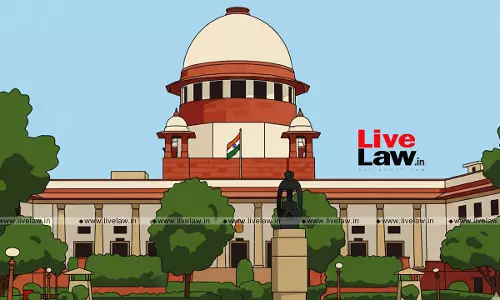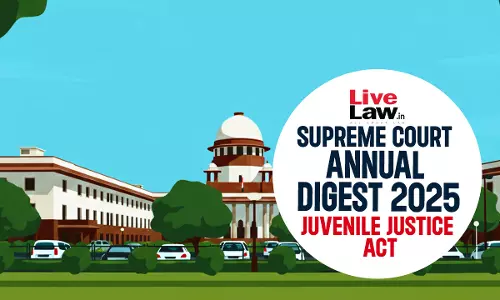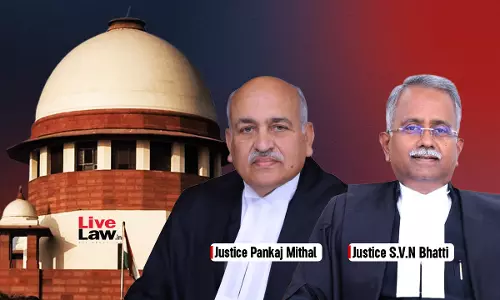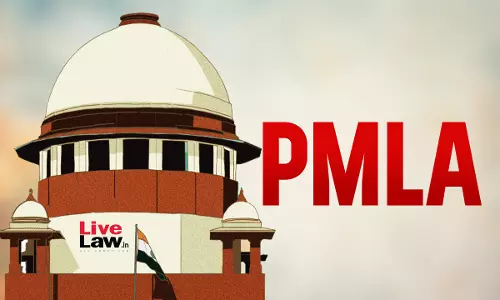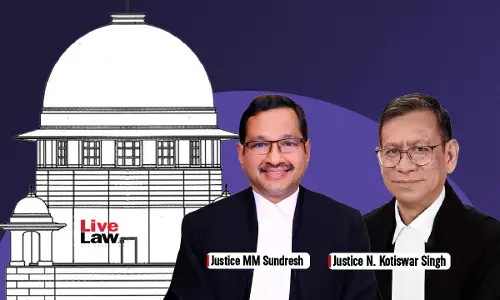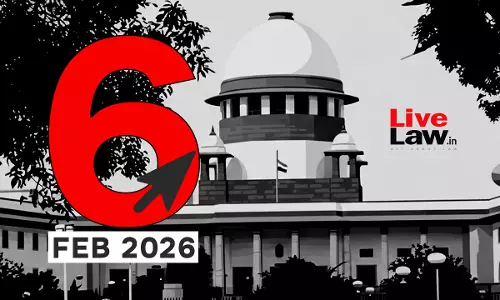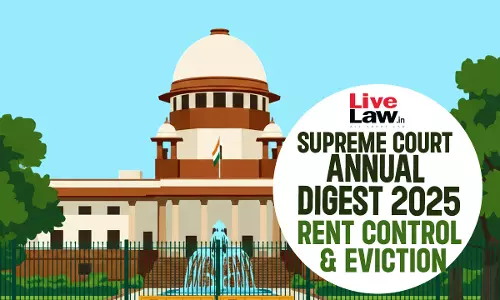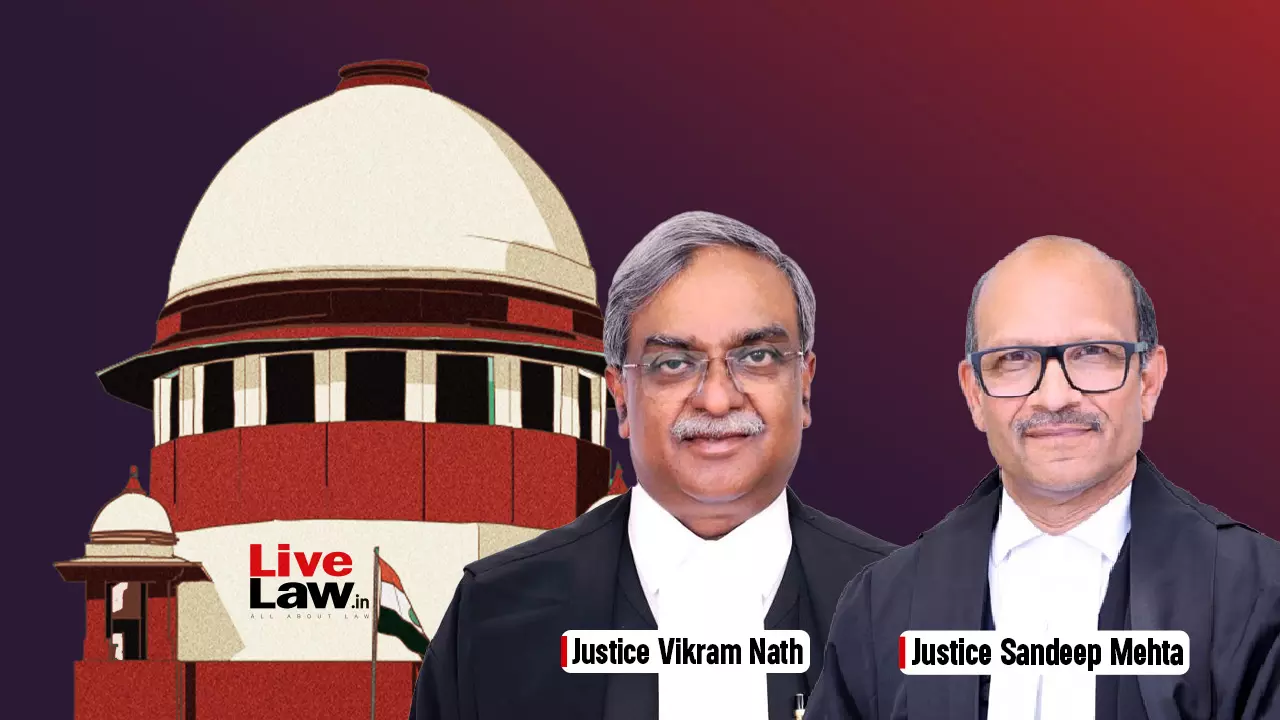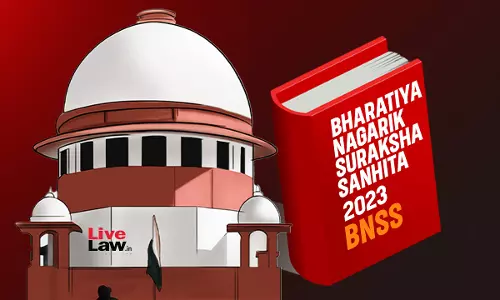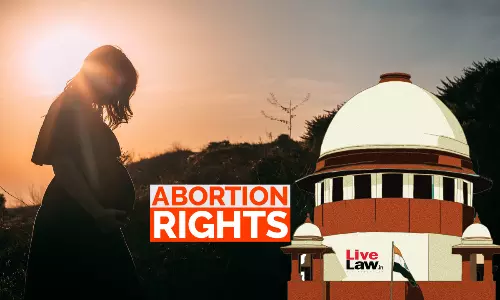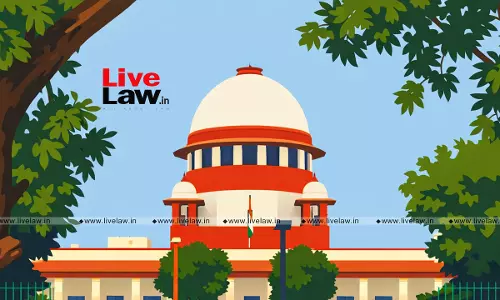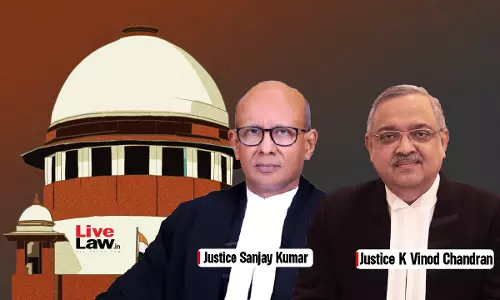Supreme court
Supreme Court Annual Digest 2025: Land Law
Land Law - Supreme Court Annual Digest 2025 Acquisition of Land for Industrial Purposes Act, 1997 (Tamil Nadu) - Sections 7(2), 7(4) and 12 - Land Acquisition - Concluded Contract - Payment of Interest – Held, a concluded contract voluntarily entered into between the Government and the landowner/person interested for the determination of compensation under Section 7(2) or...
Supreme Court Annual Digest 2025: Juvenile Justice Act
Criminal Law – Bail - Juvenile Justice - Sexual Offences - Sex Education - Supreme Court reiterated its direction to the State of Uttar Pradesh to file an additional affidavit informing the Court on how sex education is provided as a part of the curriculum in higher secondary schools (Classes IX to XII) so that young adolescents are made aware of the hormonal changes that come...
Photocopy Of Document No Evidence Unless Conditions To Produce Secondary Evidence Proved : Supreme Court
The Supreme Court has set aside the sale undertaken on the strength of a photocopied Power of Attorney, noting that a photocopy of a document, being secondary evidence, is not evidence unless it falls under the conditions set out in Section 65 of the Evidence Act.Section 65 of the Evidence Act permits the production of secondary evidence (copies, oral accounts) when the original document cannot be produced under Section 64. This applies if the original document/evidence is lost, destroyed, rests...
Quasi-Judicial Authorities Lack Review Power Unless Statutorily Empowered : Supreme Court
The Supreme Court on Friday (February 6) held that the quasi-judicial authorities aren't empowered to exercise review jurisdiction unless statutorily empowered to do so. A bench comprising Justices M.M. Sundresh and N. Kotiswar Singh overturned the Calcutta High Court's decision that had sustained the Revenue Officer's exercise of review jurisdiction. The Court held that the vesting of the disputed land in favour of the respondent, done pursuant to the State Minister's instructions, was...
Supreme Court Daily Round-Up : February 6, 2026
Links to today's reports :Supreme Court To Examine If Pupil -Teacher Ratio Fixed In Maharashtra Is Contrary To RTE ActTrial Courts Must Record Offer Of Free Legal Aid To Accused Before Examination Of Witnesses : Supreme CourtState Govt Employees Can't Claim Dearness Allowance Twice A Year Unless Rules Permit : Supreme CourtSupreme Court Rejects TN Cadre IPS Officer's Claim For Rajasthan...
Supreme Court Annual Digest 2025: Rent Control & Eviction
Rent Control & Eviction - Supreme Court Annual Digest 2025 Appellate Authority's Error - The Appellate Authority's reversal of the Prescribed Authority's findings was unsustainable, as it failed to provide convincing reasons to dislodge the evidence-based conclusion of bona fide need. The assumption that the landlord had substantial business interests was not supported by...
Statutory Authorities Can Intervene If Housing Society Delays Membership Decisions : Supreme Court
The Supreme Court has observed that the statutory authority can step into the affairs of the co-operative housing societies' matters when the society refuses to decide or keeps the matter pending for a long time. A bench of Justices Vikram Nath and Sandeep Mehta heard the matter that relates to the delay in granting of the membership to the flat owners in one Malboro House Co-operative...
'Court Cannot Compel Any Woman To Complete Pregnancy': Supreme Court Allows Termination Of Minor's 30-Week Pregnancy
Observing that a Court cannot compel a woman, much less a minor, to continue an unwanted pregnancy, the Supreme Court on Friday permitted the medical termination of a 30-week pregnancy of a girl who had become pregnant while she was a minor.A Bench of Justice B V Nagarathna and Justice Ujjal Bhuyan emphasised that reproductive autonomy of the pregnant girl must be given due weight,...
Supreme Court Rejects TN Cadre IPS Officer's Claim For Rajasthan Cadre Vacancy Of 2004
The Supreme Court recently rejected a 2004 batch Tamil Nadu Cadre IPS officer's plea seeking appointment against an insider vacancy for the same year in the Rajasthan Cadre after two senior candidates declined to join.A bench of Justice Rajesh Bindal and Justice Atul S. Chandurkar noted that appellant Rupesh Kumar Meena raised the claim six years later in 2010, and observed that interfering...
Trial Courts Must Record Offer Of Free Legal Aid To Accused Before Examination Of Witnesses : Supreme Court
The Supreme Court on Thursday (February 5) passed an important order directing the High Courts to pass on an instruction to the trial courts within their state to inform the accused of their right to legal aid in the event they cannot afford a counsel. The response of the accused to the offer of free legal aid must be recorded. “It is incumbent upon the trial Courts dealing with...



